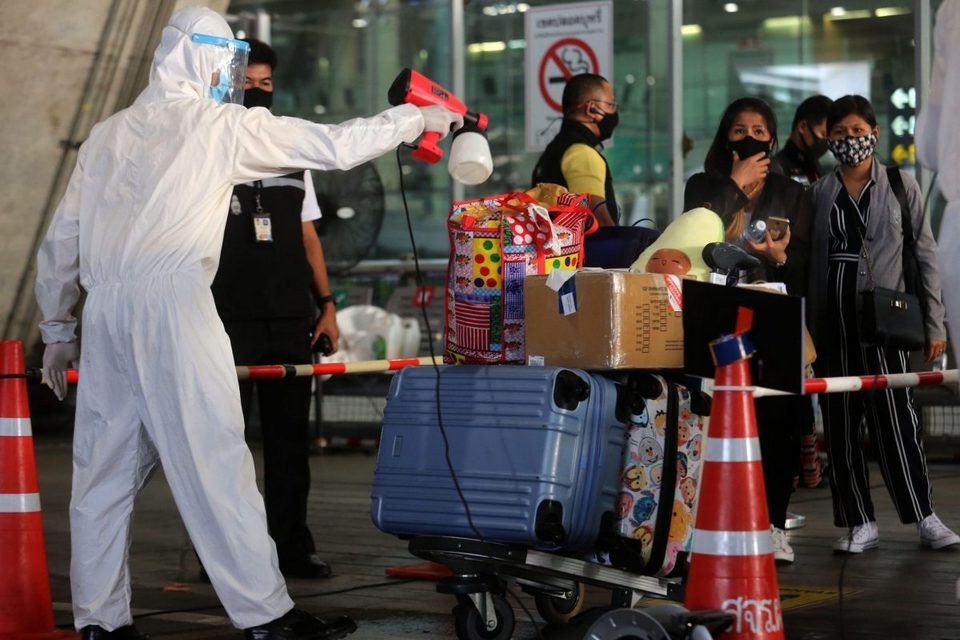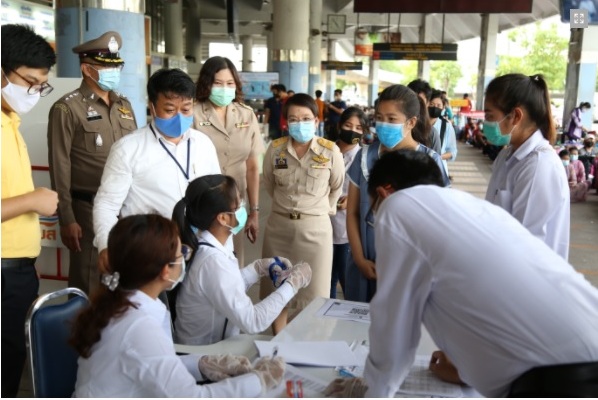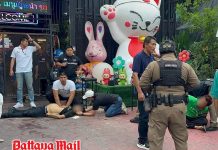
Growing evidence that migrants crossing illegally from Myanmar to find work in Thailand have created the current surge in coronavirus here has persuaded the Bangkok government to remove the fear of prosecution from them. Undocumented workers from Myanmar, Laos and Cambodia are instructed to record their details at the Foreign Workers Employment Agency (FWEA), a privatized network which handles registration nationwide on behalf of the immigration authorities.
Thailand has always been dependent on guest workers from neighboring countries to fill labour shortages here, especially in the construction, fishing, factory and retail sectors. Recent government figures reveal that there are now about 400,000 documented workers from Myanmar, Laos and Cambodia in employment. The number of unregistered, illegal workers may be a similar number. Many legal and undocumented labourers left Thailand shortly before the land borders were closed during the Covid-19 crisis last spring.
Although the frontier immigration posts remain closed for most purposes, they are still open to accept a small number of wannabe workers from the listed countries. Those proceeding through immigrant checkpoints are checked for coronavirus and housed in compulsory quarantine for two weeks, mostly hotels near border areas. But the immigrants or their potential employers in Thailand must pay for these services. The expense has boosted traffic in illegals who cross the leaky borders, often marked by a river, on their own or are shepherded by gangs or corrupt officials in return for a fee. Some entrants don’t even have a passport or identifying documentation.

The Thai government has now agreed to use section 17 of the immigration act to make the registration of illegal workers possible at an FWEA office without fear of prosecution and deportation. They will be given pink cards (permission to work in low-skilled jobs) and found employment where necessary. Most importantly, they will undergo a Covid-19 test and be required to follow strict virus control protocols. However, one worry is that most guest workers live in close proximity in camp sites or cheap hotels where social distancing is problematical. Thai health authorities are promising regular checks.
By contrast, the number of international travellers arriving by air is quite small. New government figures indicate that, in the calendar year 2020, about 150,000 Thais and 55,000 foreigners have landed at Bangkok on repatriation or semi-commercial flights and been quarantined for the regulatory two weeks. But less than 2,000 individuals – 0.75 percent of the total – have been found to be infected on arrival or during their confinement. These statistics lend force to the argument that the country’s land borders, rather than airports, pose the real threat from the virus.
The 55,000 foreigners arriving by air have all provided voluminous documentation to obtain their mandatory certificate of entry from the local Thai embassy overseas. They are mostly individuals with permanent residency here (holding a police red book), those with responsibility for a Thai spouse/family and holders of work permits. A smaller group comprises foreign students and medical tourists, together with condominium owners and serious investors.
The introduction of tourist visas several weeks ago, including the Special Tourist Visa and the inclusion of the Elite visa as a route to entry, has not so far had a significant effect on numbers. The total from these sources is 917 Chinese passport holders, 978 Europeans/Americans and 376 from Asean member-countries. Thailand is currently the only country in Southeast Asia offering tourist visas at embassies worldwide. But the future of international tourism now looks very bleak unless and until there is a mass vaccination program or a less cumbersome testing procedure which can give a result in minutes rather than hours or days. Challenging months lie ahead. Very challenging.





